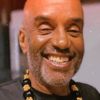Become part of the movement for unbiased, accessible election information. Donate today.
Maxwell Frazier
Maxwell Frazier (Democratic Party) is running for election to the U.S. House to represent Hawaii's 1st Congressional District. He declared candidacy for the 2026 election.[source]
Frazier completed Ballotpedia's Candidate Connection survey in 2025. Click here to read the survey answers.
Biography
Maxwell Frazier was born in Florida. He served in the U.S. Navy from 2020 to 2025. He earned a high school diploma from Mount Dora High School. His career experience includes working as a technician.[1]
Elections
2026
See also: Hawaii's 1st Congressional District election, 2026
General election
The general election will occur on November 3, 2026.
General election for U.S. House Hawaii District 1
Incumbent Ed Case, Maxwell Frazier, Perry Gregg, and Jarrett Keohokalole are running in the general election for U.S. House Hawaii District 1 on November 3, 2026.
Candidate | ||
 | Ed Case (D) | |
 | Maxwell Frazier (D)  | |
 | Perry Gregg (D)  | |
 | Jarrett Keohokalole (D) | |
 = candidate completed the Ballotpedia Candidate Connection survey. = candidate completed the Ballotpedia Candidate Connection survey. | ||||
| If you are a candidate and would like to tell readers and voters more about why they should vote for you, complete the Ballotpedia Candidate Connection Survey. | ||||
Do you want a spreadsheet of this type of data? Contact our sales team. | ||||
Endorsements
Ballotpedia is gathering information about candidate endorsements. To send us an endorsement, click here.
Campaign themes
2026
Ballotpedia survey responses
See also: Ballotpedia's Candidate Connection
Maxwell Frazier completed Ballotpedia's Candidate Connection survey in 2025. The survey questions appear in bold and are followed by Frazier's responses. Candidates are asked three required questions for this survey, but they may answer additional optional questions as well.
| Collapse all
I studied at Daytona State College and plan to continue my education at the University of Hawai‘i at Mānoa, where I’ve applied to begin in Spring 2026 while I campaign. At Daytona State, I wasn’t afraid to stand up for what I believed in — from joining Greenpeace in protest to organizing for clean oceans and environmental accountability.
My Navy service cemented my commitment to duty, honor, and defending the freedoms we all share. Today, I carry those lessons into my work as a builder of communities — not just through finance and policy, but through showing up for people.
I’m running for Congress because I believe Hawai‘i deserves leaders who put people first — leaders who will fight to bring down the cost of living, protect our environment, and ensure that Washington respects the sovereignty and voice of Hawai‘i in shaping our future.- Children can’t learn if they’re hungry or if the food they eat makes them sick. I will fight for the Honest Education Act to ensure our schools provide honest, world-class education — and pair that with reform of the FDA so families can trust the food on their tables. While Europe and Mexico require clear warnings — like the black octagon labels that alert families to high sugar, salt, or fat — the U.S. too often allows corporations to decide what’s safe. Our children deserve better. I will fight for stronger nutrition standards, fair food pricing, and policies that make healthy meals affordable. Building strong families begins with honest education and food security that protects kids, not corporate profits.
- We all deserve leaders who are accountable, visible, and unafraid to let the people see how decisions are made. I will use social media to enforce transparency, posting votes, budgets, and explanations so the public can hold me accountable in real time. Washington’s TikTok ban is more than a tech issue — it’s about silencing a platform they cannot control, echoing restrictions we’ve seen in countries like Nepal. That is not democracy. Free expression and open information are vital to a healthy republic. I will fight against censorship, end pay-to-play politics, and ensure government remains answerable to the people, not hidden behind closed doors.
- As a Navy veteran, I know Hawai‘i is the front line of both opportunity and responsibility. Protecting our future means investing in renewable energy, defending our oceans, and making sure your culture and sovereignty are never treated as afterthoughts. Washington must respect Hawai‘i as more than a base — you are a people, a history, and a living culture. I will push for policies that strengthen our defense while also securing our environment and economy. That includes sustainable infrastructure, support for local agriculture, and protecting Pacific partnerships. Hawai‘i’s voice matters, and I will ensure it is heard and respected at every level of government.
On the other side, my history is less certain. There are family tales of Native American heritage, along with deep Scottish roots tied to early immigration to the Americas. Unlike the Irish side, this history feels more distant, less recorded, and harder to claim as my own. That uncertainty has often left me searching for where I belong — as though part of my real story remains hidden.
This tension — between what I know and what I do not — has shaped my outlook. I was raised as a typical American, yet as a young man I found meaning in the teachings of Haile Selassie, and I have long felt drawn to indigenous rights and sovereignty movements. Their fight for dignity and recognition resonates with my own search for identity. All of our histories are connected, but too often we are taught them separately, as if they do not converge in us.
I also struggle with how far behind our republic has fallen compared to what it could achieve. NASA had the knowledge to take us to Mars decades ago, but politics denied the vision. The space industry has already given us countless advances that shape daily life, yet most people remain unaware of the scope of its contributions. To imagine what might have been if vision had matched ability is both inspiring and heartbreaking.
Experience in government can be useful for understanding process, procedure, and the mechanics of lawmaking. It can help a representative navigate committees, negotiations, and drafting legislation. But politics was never meant to be a profession reserved for insiders, nor should prior office be treated as a prerequisite for service. The Constitution does not require a degree or political résumé — only age, residency, and citizenship. That was intentional. Public office was meant to be rooted in civic duty, not locked away as a career path.
A healthy Congress requires balance. Experience can provide wisdom and institutional memory. But fresh voices bring accountability, energy, and perspectives missing when the same people hold office for decades. True representation means citizens from all walks of life — teachers, veterans, small business owners, parents, workers — stepping forward to serve. Government works best when it reflects the people, not a permanent political class.
Globally, the stakes are rising. Nations like Nepal face revolution, yet the world often looks away. Ignoring these struggles signals weakness and abandonment of responsibility. Hawai‘i, at the heart of the Pacific, will be the proving ground for whether the United States remains a republic that defends sovereignty and builds partnerships, or whether it yields to complacency. Protecting sovereignty abroad is inseparable from protecting it at home.
We must also correct the wrongs of past administrations, which too often favored special interests over the people. Our children still face classrooms without resources, food shaped by unsafe practices, and an economy distorted by corruption. Entrenched politicians weaponize procedure instead of solving problems, weakening the republic they swore to serve. The Constitution was designed to be amended as the people grow, not frozen as a tool of the powerful.
Meanwhile, advances in artificial intelligence and biotechnology will test whether the republic remains a government of, by, and for the people, or one captured by elites. Oversight, ethics, and transparency are essential.
Note: Ballotpedia reserves the right to edit Candidate Connection survey responses. Any edits made by Ballotpedia will be clearly marked with [brackets] for the public. If the candidate disagrees with an edit, he or she may request the full removal of the survey response from Ballotpedia.org. Ballotpedia does not edit or correct typographical errors unless the candidate's campaign requests it.
Campaign finance summary

See also
2026 Elections
External links
Footnotes
- ↑ Information submitted to Ballotpedia through the Candidate Connection survey on September 20, 2025





